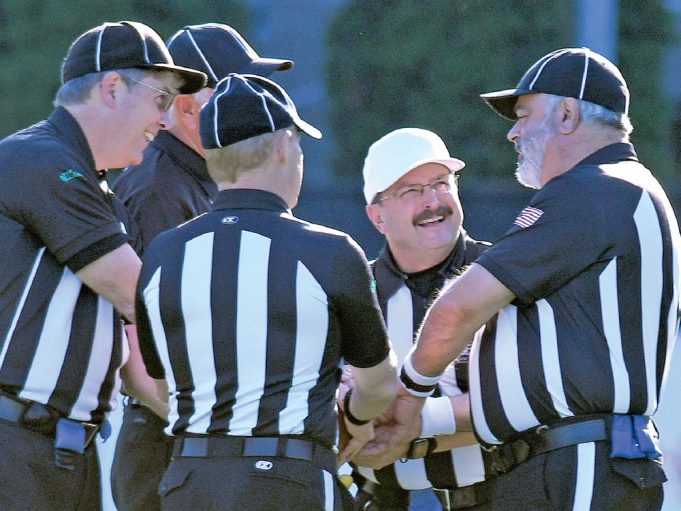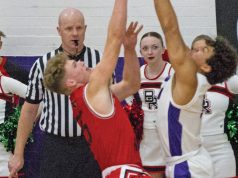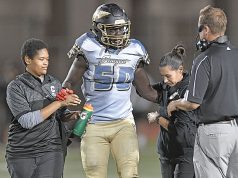“Perception is reality.” When it comes to officiating team sports, that’s often the absolute truth. It doesn’t matter what sport you’re officiating, crew cohesion is a must for your crew to be perceived positively. Another absolute truth is when everyone isn’t on the same page, it doesn’t take players, coaches and fans long to recognize that “tonight’s officials are struggling.”
Working in established crews is common in football, but it isn’t unheard of in other sports as well. While most of the concepts offered here refer to situations in which the same officials work together all or most of the time, the assumption is any group of officials can and should work any game cohesively.
The best officiating crews take the field or floor as one official. They know the only philosophy that matters is the crew’s philosophy. They’ve invested time together away from the sport. They know each other, respect each other’s judgment and approach the game with confidence. Because there is no room for “the individual,” they’ve worked hard to create a team approach.
No crew establishes a quality reputation quickly. It takes time. Only after working many games together, suffering through mistakes, and sharing the highs and lows of several seasons can a crew establish itself as one that can be counted upon to work the big games consistently.
We’ve all seen the football crews that have one official who throws many more flags or basketball crews with one official who calls more fouls or violations. That official’s philosophy is different from that of his or her crewmates. The perception those officials are sending is not only are they not on the same page, they haven’t even entered the library together. It’s a recipe for disaster.
If you’re not in that situation and never have been, don’t get cocky because it’s only a replacement official away. As you work toward cohesion, thorough pregame sessions are essential.
Importance of a crew chief.
Each crew of officials has (or should have) a leader, usually the crew chief. Often, he or she is designated by position or by the game assigner in how names are listed on a contract or online assigning website. A good crew chief heads off many of the ills described above by conducting a thorough pregame meeting.
In some situations, crew chiefs are not designated; instead they evolve. Often sports officials will select a person who should be “in charge” for the game. That may be based on any number of factors, including age, years of experience, reputation, etc.
It’s the crew chief’s responsibility to make each person feel comfortable in the pregame. No official should feel intimidated, overwhelmed or in the shadow of another official. Those who are will be hesitant and not able to make the calls that need to be made. If one of the crew members is new or less experienced, the crew chief can elevate him or her up to a higher level so the entire crew performs at a higher level.
One way to do that is to have the new or less-experienced crew member begin conducting the pregame conference. The more that official participates and throws out ideas, the more comfortable he or she will feel. A crew chief who dominates the pregame can create barriers.
Getting crew members to do what the chief wants can be awkward, especially if there’s resistance. Most effective crews allow for some “give and take.” The crew chief seeks input from the others and the crew reaches a consensus. Each member is part of the decision-making, a key element in developing a “team feeling.” The goal is to do that in a uniform manner so the potential for confusion is minimized.
Maintaining crew harmony.
When the game begins, the process continues. No raised eyebrows, negative body language or outward criticism can be tolerated if the crew is to work productively as a team, and thereby earn the respect of the players, coaches and fans.
Officials must try to help each other. Don’t openly criticize, but offer honest assistance. Don’t ever embarrass a crew member and imply that you don’t agree with his or her judgment.
It’s important to know the other officials on the field or court are with you in every sense of the word. It’s not enough to just wear the same clothes, you’ve got to take the time and make sure everything fits. Your performance and your crew’s reputation will benefit from the extra effort. *
What's Your Call? Leave a Comment:
Note: This article is archival in nature. Rules, interpretations, mechanics, philosophies and other information may or may not be correct for the current year.
This article is the copyright of ©Referee Enterprises, Inc., and may not be republished in whole or in part online, in print or in any capacity without expressed written permission from Referee. The article is made available for educational use by individuals.
















